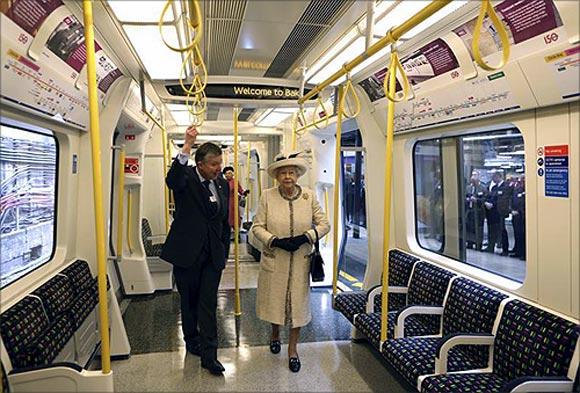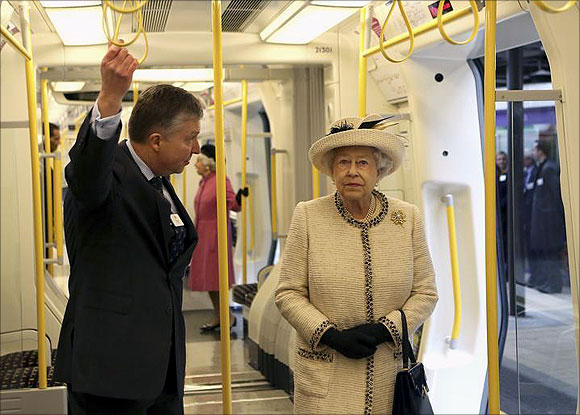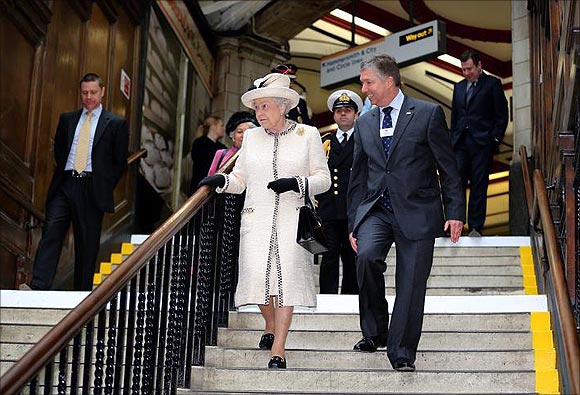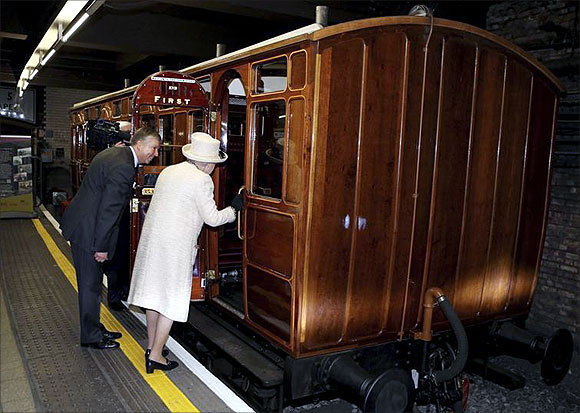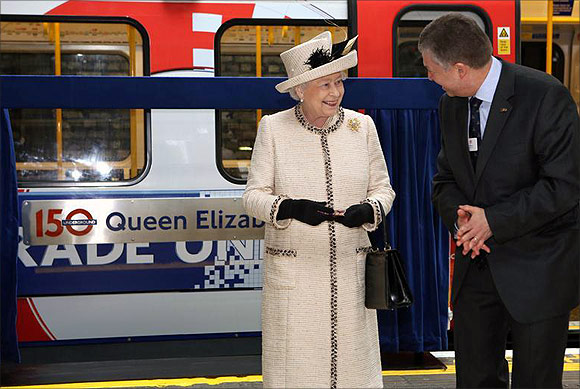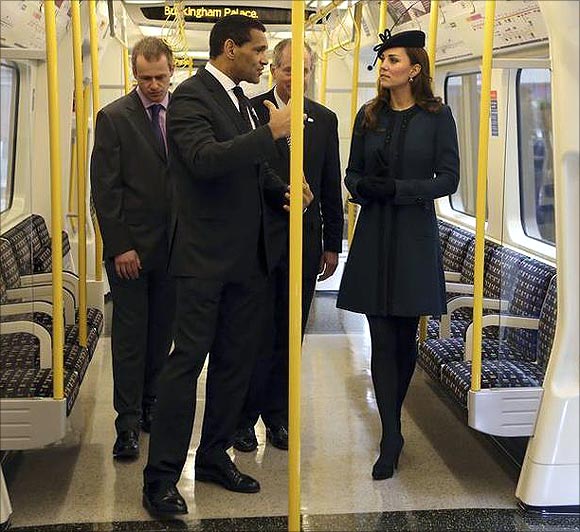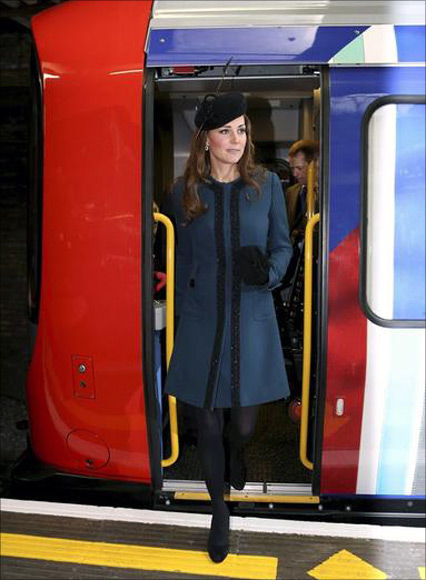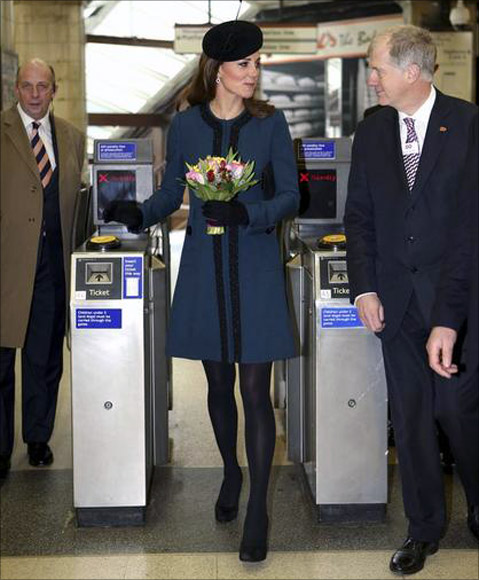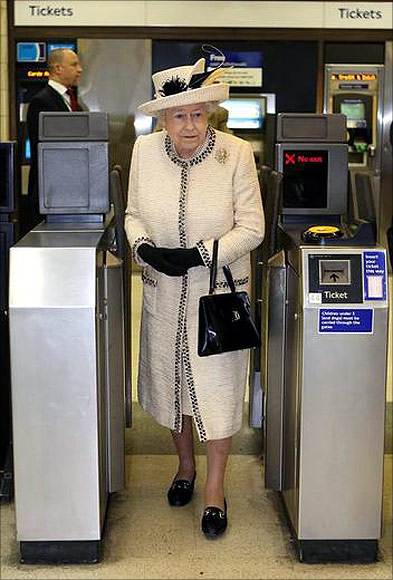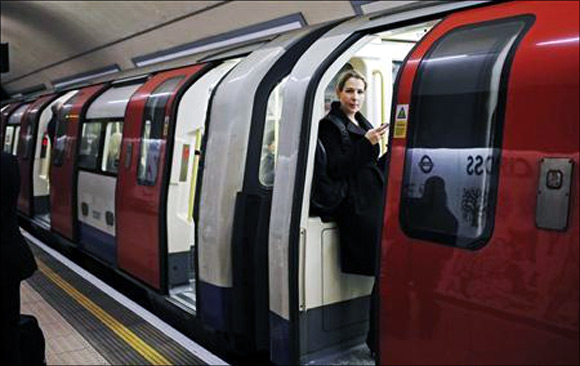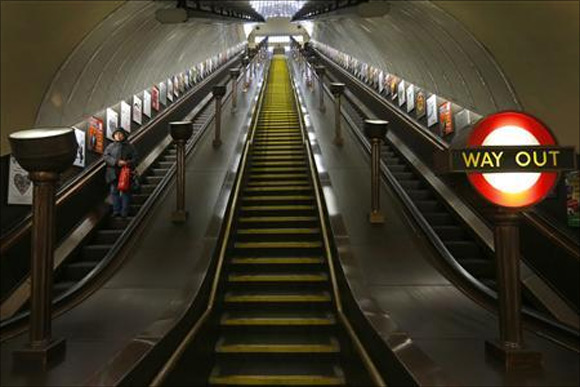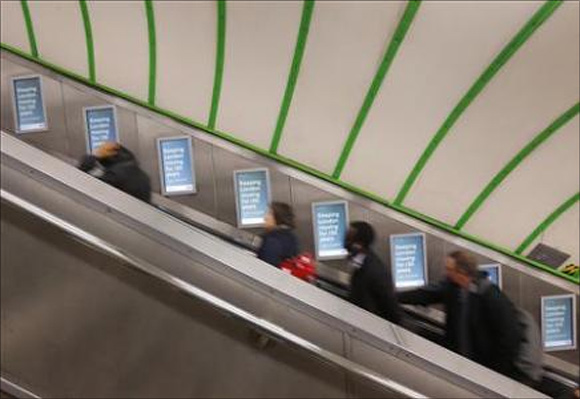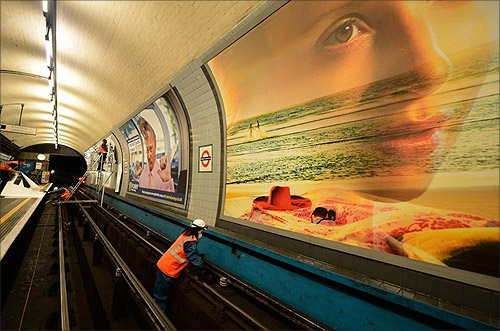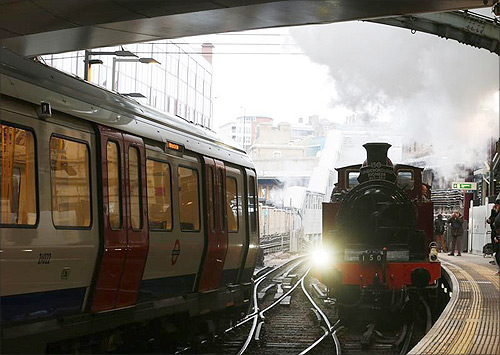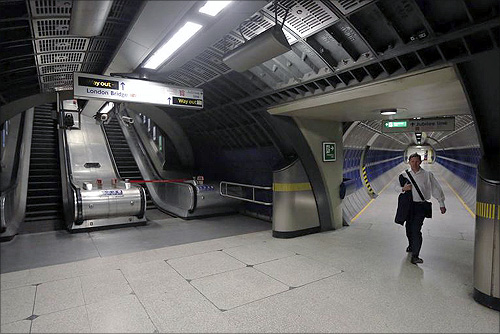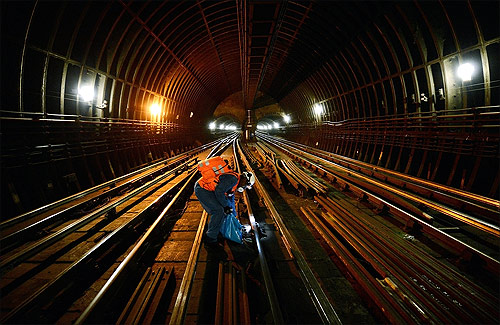 | « Back to article | Print this article |
London's 'lifeline' is 150 years old!
The world's first and biggest underground metro railway started operations 150 years ago.
The London Underground's first journey took place between Paddington and Farringdon on 9 January 1863.
Today, the system serves 275 stations, has a track length of 408 kilometres, 45 per cent of which is underground.
The Tube, hailed as the lifeline of London, carries over 3 million passengers daily.
London Underground, in partnership with London Transport Museum is celebrating 150 years of service with a range of events and activities throughout 2013.
Queen Elizabeth II alongwith her granddaughter-in-law Kate Middleton also joined the year-long celebrations of 150 years of London's Tube.
Click NEXT to read more...
London's 'lifeline' is 150 years old!
The London Tube system serves a large part of Greater London and some parts of Buckinghamshire, Hertfordshire and Essex.
Click NEXT to read more...
London's 'lifeline' is 150 years old!
The Tube is one also of the world's deepest metro systems, it descends to 220 feet at Hampstead Heath in north London.
Click NEXT to read more...
London's 'lifeline' is 150 years old!
It is the fourth largest metro system in the world in terms of route miles, after the Seoul Metropolitan Subway, Shanghai Metro and the Beijing Subway.
Click NEXT to read more...
London's 'lifeline' is 150 years old!
The Metropolitan Railway was granted permission to build railway line in 1854.
Click NEXT to read more...
London's 'lifeline' is 150 years old!
It started services between Paddington and Farringdon using gas-lit wooden carriages hauled by steam locomotives.
Click NEXT to read more...
London's 'lifeline' is 150 years old!
It was hailed as a success, carrying 38,000 passengers on the opening day.
Click NEXT to read more...
London's 'lifeline' is 150 years old!
The metro network also has one of the largest number of stations. The underground railway system is currently being upgraded to increase capacity.
Click NEXT to read more...
London's 'lifeline' is 150 years old!
Fifty-five per cent of the system runs on the surface, and there is 20 miles (32 km) of cut and cover tunnel and 93 miles (150 km) of tube tunnel.
Click NEXT to read more...
London's 'lifeline' is 150 years old!
London Underground trains come in two sizes, larger sub-surface trains and smaller deep-tube trains. Since the early 1960s all passenger trains have been electric multiple units with sliding doors.
Click NEXT to read more...
London's 'lifeline' is 150 years old!
The underground railway carries 1.1 billion people every year.
Click NEXT to read more...
London's 'lifeline' is 150 years old!
The Underground does not run 24 hours a day except at New Year and during major public events such as the Queen's Golden Jubilee in 2002 and the opening and closing ceremonies of the 2012 London Olympics.
Click NEXT to read more...
London's 'lifeline' is 150 years old!
The escalators in Underground stations include some of the longest in Europe and all are custom-built. The longest escalator is at Angel station, 60 m (197 ft) long, with a vertical rise of 27.5 m (90 ft).
Click NEXT to read more...
London's 'lifeline' is 150 years old!
Passengers use the escalator at Paddington Underground station, passing posters highlighting London Underground's 150th anniversary.
Click NEXT to read more...
London's 'lifeline' is 150 years old!
A cleaner, known as a fluffer, works in Highbury and Islington station in London.
Click NEXT to read more...
London's 'lifeline' is 150 years old!
In January, a 1898-built steam engine known as Met Locomotive No 1, pulled carriages along part of the Hammersmith & City Line, as part of the celebrations to mark 150th anniversary of the world's oldest underground passenger railway.
Click NEXT to read more...
London's 'lifeline' is 150 years old!
The passageways at the London Bridge Underground station are unusually empty during rush hour in London.
Click NEXT to read more...
London's 'lifeline' is 150 years old!
Commuters board a tube train at Holborn Underground Station in London.
Click NEXT to read more...
London's 'lifeline' is 150 years old!
A cleaner, known as a fluffer, inspects the train tracks on the Victoria Line near Highbury and Islington station in London.
Clikc NEXT to read more...
London's 'lifeline' is 150 years old!
A London underground worker sweeps snow off the platform at Barons Court tube station in London.
